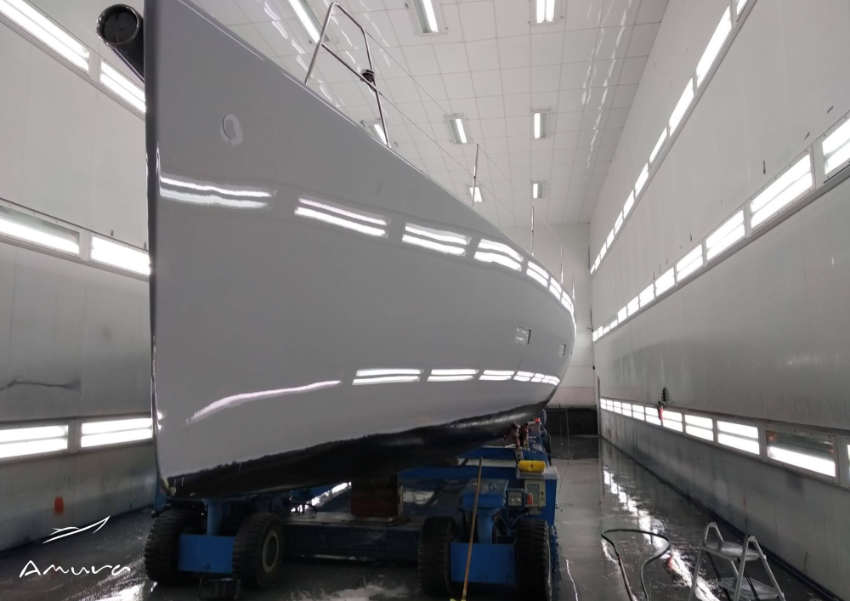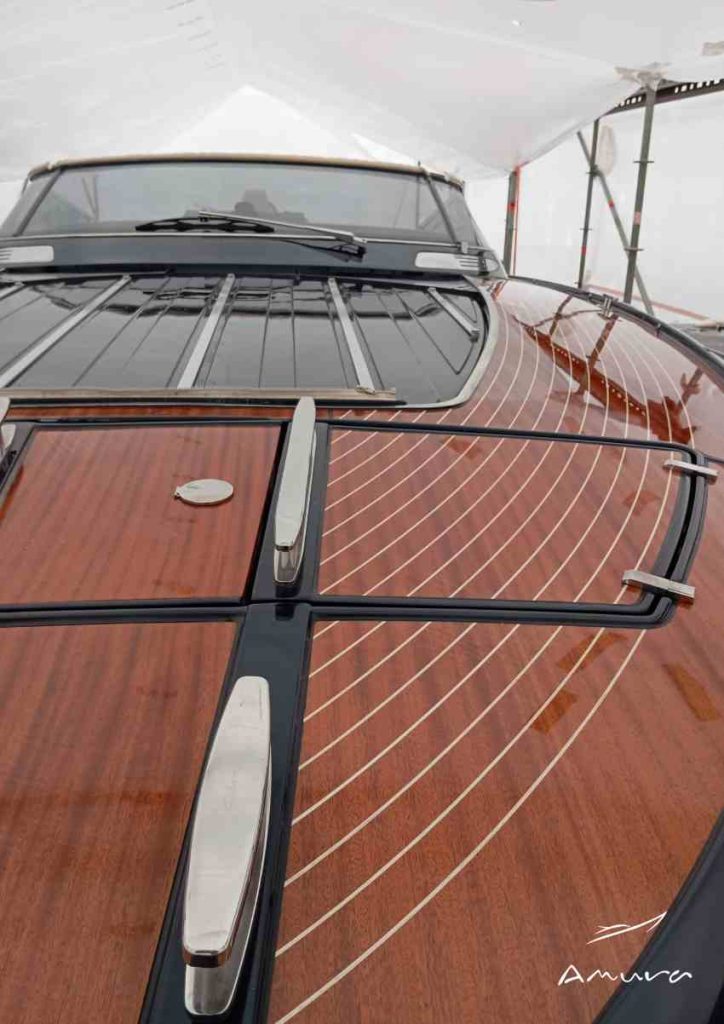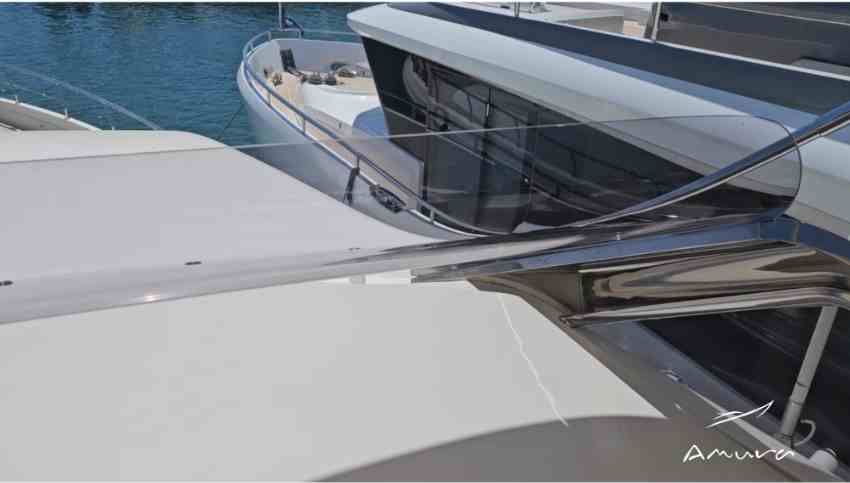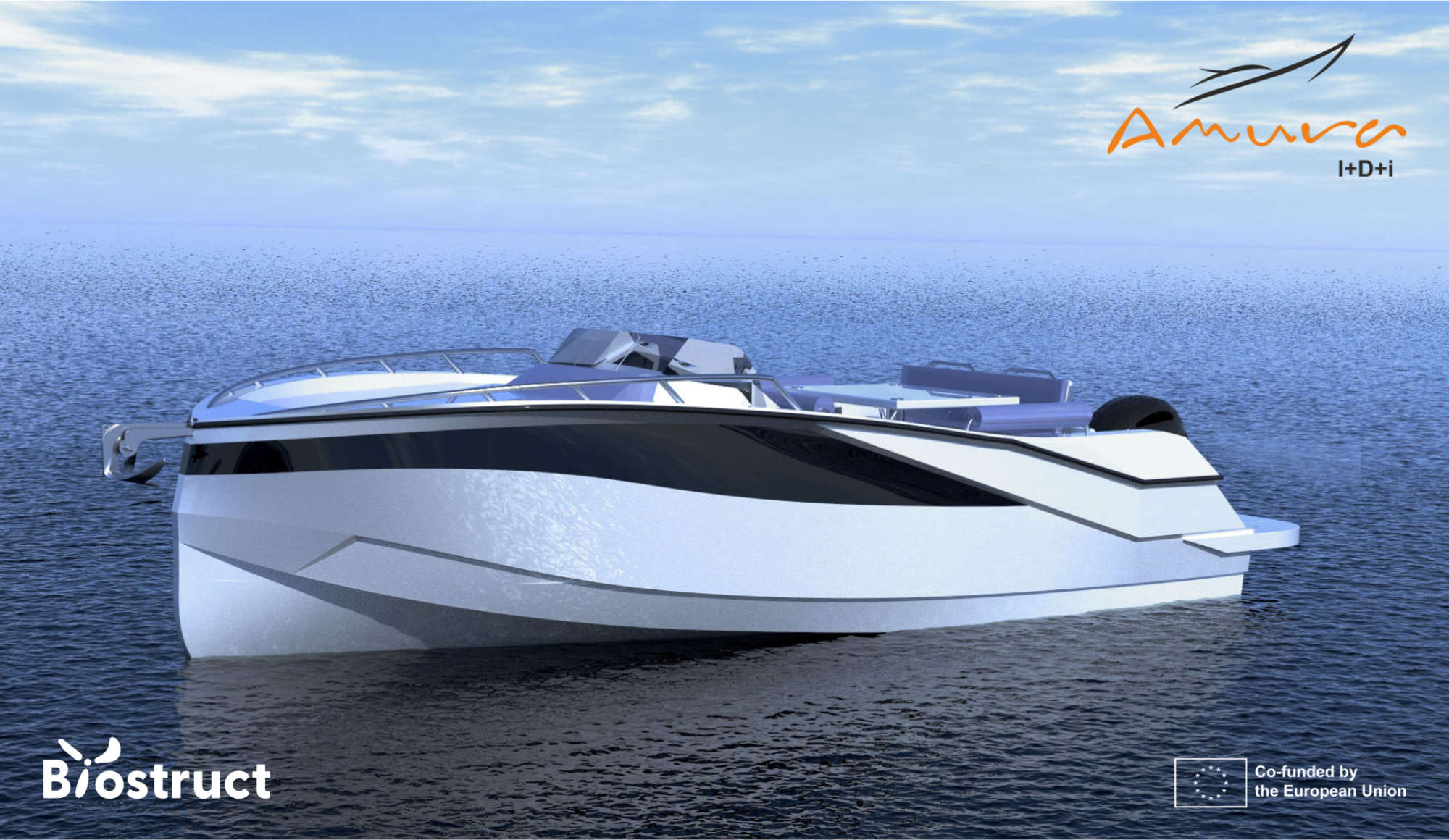Amura is a Galician company based in Vigo (Spain) with over two decades of experience in the nautical sector, specialising in comprehensive maintenance, repair and construction of recreational boats.
Interview with Rebeca Cid, R&D Director and Project Manager at Amura.
Brief description of the company and its activities
Rebeca Cid: Our artisan vocation coexists with a strong commitment to innovation: we manufacture parts and vessels using composite materials such as GRP, carbon fibre or acrylic glass, covering the entire process from mould design to final finishing. We also have our own R&D&I department, which drives innovation projects aimed at more sustainable boating, acting as a bridge between academic research and its real-world application in the shipyard.
What are the main areas of activity of the company?
R.C: At Amura, we offer a wide range of specialised services for the nautical sector. We carry out comprehensive maintenance, structural and aesthetic repairs, complete refits, and manufacture custom composite parts for all types of boats. We also take on full boat construction projects, especially when the technical challenge requires bespoke solutions.
Our activity is mainly concentrated in Galicia and the Balearic Islands, although we also operate in other parts of the country, collaborating with shipyards, marinas and private boat owners.
From our R&D&I department, we promote the use of more sustainable materials, invest in more efficient manufacturing processes, and develop new technologies applied to the future of yachting, combining innovation and technical expertise with a responsible approach to the sea and its industry.
What’s the news about new products/services?
R.C: We are currently leading the construction of a full-scale demonstrator within the framework of the European project BioStruct, co-funded by the European Union through the Horizon Europe programme. It is a 100% electric, six-metre recreational vessel, whose hull, deck and structural components are being manufactured entirely from biocomposites: natural fibres such as flax and bio-based epoxy resins.

The aim is not only to demonstrate the technical viability of these materials under real navigation conditions, but also to move towards a more responsible and efficient production model. To this end, the project incorporates automation technologies such as robotic draping, as well as real-time monitoring systems using embedded sensors.
BioStruct brings together 10 European partners from six countries, covering fields such as research, industry, engineering and certification. This diversity ensures a comprehensive and innovative approach to validating sustainable and scalable solutions in shipbuilding.
This development represents a milestone for our company and for the sector, as it combines sustainability, digitalisation and structural safety in a single process. It is also a firm commitment to an innovative kind of boating, ready to face the environmental, industrial and regulatory challenges of the coming years.
What are the ranges of products/services?
R.C: We offer a broad range of services tailored to the needs of the nautical sector, ranging from minor repairs to full-scale refit, transformation or construction projects.
Our expertise in composite materials allows us to manufacture customised technical parts for both structural and decorative applications, integrating different types of fibres and resins depending on the final use.
In parallel, we develop innovative solutions applied to the marine environment, especially in the field of biocomposites, through active collaborations with universities, technology centres and industrial partners within the framework of national and international R&D projects.

What is the state of the market where you are currently active?
R.C: The recreational boating sector is undergoing a clear transition towards more sustainable models, driven by growing environmental awareness and regulatory pressure extending from other industrial sectors. The demand for lower-impact solutions is opening up new opportunities for alternative materials such as natural-origin biocomposites.
In the European Union, the automotive sector already sets strict requirements: since 2006, vehicles at the end of their useful life must achieve at least 80% reuse and recycling by weight, and since 2015 this threshold has increased to 85%. This roadmap signals the direction for the naval sector, both industrial and recreational, to follow suit.
Although there are still technical, regulatory and user acceptance barriers, the trend is clear and strong: boating is aligning with the circularity and eco-responsibility goals already defined in other industries.
What can you tell us about market trends?
R.C: The nautical sector is moving towards lighter, more efficient and sustainable vessels. Materials such as flax or hemp, combined with bio-based resins, are becoming established as viable alternatives for various applications. At the same time, there is increasing investment in electrification and hybrid propulsion systems, driven by advances in battery technology and energy efficiency.
In addition, technologies such as robotic draping, digital twins and onboard monitoring are starting to be implemented even in medium-sized shipyards, accelerating the digital transformation of the sector and bringing it closer to the sustainability and connectivity standards seen in other industries.
What are the most innovative products/services marketed?
R.C: Thanks to our participation in innovation projects, we have acquired solid experience which we now apply to the manufacture of components using vacuum infusion with renewable materials such as natural fibres, recycled fibres and bio-based resins. This technical know-how is already being applied to the production of secondary boat components using materials such as recycled carbon fibre and natural fabrics like flax, offering real solutions to the sustainability challenge in the nautical sector.
Moreover, at Amura we carry out highly specialised work that requires great precision and expertise projects that few shipyards are equipped to undertake. In a sector that remains largely artisanal, we have a team of highly qualified professionals capable of tackling complex projects using demanding materials such as acrylic glass, or applying high-gloss metallic paints where both aesthetic finish and technical perfection are critical.

This combination of innovation, sustainability and artisanal specialisation enables us to deliver tailored solutions in projects that far exceed the industry’s standard offer.
What estimations do you have for the second half of 2025?
R.C: We have just publicly presented the design of the vessel we will build under the BioStruct project, and in the coming months we will be sharing technical progress, research findings and the challenges encountered throughout the construction process.
Although the goal is to present the finished boat at the Boot Düsseldorf fair in January 2027, we are already working in parallel on the development of a commercial offering based on hybrid solutions that combine sustainable materials with guarantees of safety, durability and seaworthiness.
Our aim is to establish a catalogue of eco-innovative products aimed at the small recreational boating segment, integrating both low-impact materials and more efficient, technologically advanced processes.


